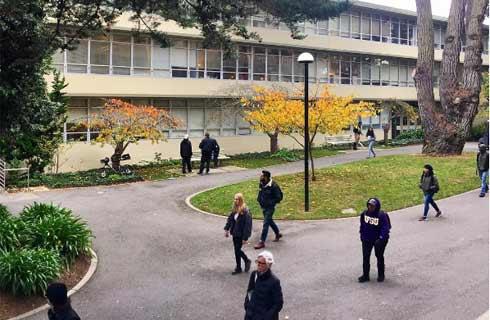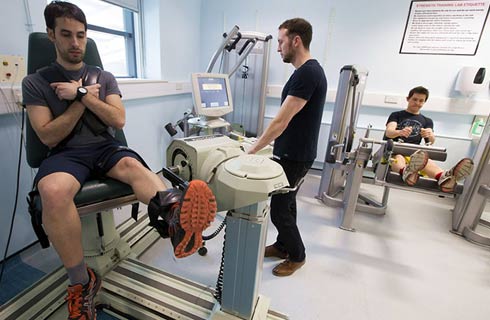理学学士-环境科学
Bachelor of Science in Environmental Science

学历文凭
Bachelor Degree

专业院系
Faculty of Agriculture and Life Sciences

开学时间

课程时长

课程学费

国际学生入学条件
IDP—雅思考试联合主办方

雅思考试总分
6.0
- 雅思总分:6
- 托福网考总分:60
- 托福笔试总分:160
- 其他语言考试:Pearson Test of English (Academic) - 50 overall score - with no communicative skill less than 42
CRICOS代码: LI0087
申请截止日期: 请与IDP联系 以获取详细信息。
课程简介
Growing populations and damaging environmental practices are putting our planet under extreme pressure. Now more than ever before, there is a need for knowledgeable scientists to apply passion, skills and understanding to restoring waterways, land, natural habitats and biodiversity, and to plant the seeds for a more balanced future in partnership with nature and the land. This Lincoln University degree, majoring in Environmental Science, will give you a firm grounding in all relevant sciences that relate to the natural environment. You’ll learn about the impacts of land use, the natural processes in soil and water, and what is required to protect and restore the environment for future generations. Your studies can be complemented with elective courses that relate to the economy, society and environmental science, so you expand your ability to have a meaningful impact on some of the most important work that is needed today. How you’ll grow Develop a scientific understanding of major challenges such as climate change and species extinction, along with the effects of intensive land and water use driven by industrialisation and rapid population growth Build a base of practical experience working with the land and water issues you’ll meet in the future, either in New Zealand or overseas Absorb the knowledge of world-class scientists spearheading research into sustainable and restorative land use practices Put your learning to work by ensuring sustainable outcomes and behaviours in New Zealand and beyond.
相关申请
 预科
预科 奖学金
奖学金 实习机会
实习机会 在校学习
在校学习 跨境学习
跨境学习 校园授课-线上开始
校园授课-线上开始 在线/远程学习
在线/远程学习
开学时间&学费
学费信息仅供参考,请与IDP联系以获取详细信息
| 开学时间 | 时长 | 学费 | 地点 |
|---|
学校排名

世界排名501
数据源:
泰晤士高等教育世界大学排名
关于林肯大学

林肯大学是新西兰历史最悠久、最具特色的大学之一。它成立于1878年,是该国的专业陆基大学,专注于通过教育、研究和创新改变生活和景观。林肯位于基督城郊外一个令人惊叹的58公顷花园式校园内,将乡村魅力和城市交通融为一体。大学在农业、环境科学、农业综合企业、旅游、景观设计和食品创新方面享有全球声誉。它在全球排名前25%的大学中名列前茅,在2025年QS世界大学排名中排名第371位,并且一直名列世界农业和林业顶尖院校之列。林肯大学在新西兰的毕业生就业率排名第一,82%的毕业生就业,并在教学、国际化和设施等关键类别中获得了著名的QS五星评级。林肯大学拥有来自67个国家的约5000名学生,形成了一个紧密团结、全球多元化的社区。小班教学、出色的学术支持和强大的关怀文化确保学生在整个旅程中得到个人支持。林肯的独特之处在于它的应用学习方法。几乎每个项目都包括行业参与、工作整合学习和实践经验,无论是进行环境研究、设计现实世界的景观解决方案,还是在农场或葡萄园工作。林肯与政府、行业和研究机构的合作有助于确保学生毕业时具备雇主积极寻求的技能。克赖斯特彻奇距离校园仅20分钟路程,是新西兰第二大城市,也是不断发展的创新、可持续发展和生活方式的中心。附近有海滩、滑雪场和国家公园,学生们在学习和娱乐之间享受着非凡的平衡。
本校相关课程
其他相关课程

环境科学学士(荣誉学位)
 迪肯大学
迪肯大学泰晤士高等教育世界大学排名:206
学历文凭
Bachelor Degree with Honours
开学日期
课程费用总额


环境科学与管理学士
 查尔斯特大学
查尔斯特大学泰晤士高等教育世界大学排名:631
学历文凭
Bachelor Degree
开学日期
课程费用总额


环境科学哲学博士
 南澳大学
南澳大学学历文凭
Ph.D.
开学日期
课程费用总额


环境科学学士
 南十字星大学
南十字星大学泰晤士高等教育世界大学排名:456
学历文凭
Bachelor Degree
开学日期
课程费用总额


环境科学与管理学士(荣誉学位)
 纽卡斯尔大学
纽卡斯尔大学学历文凭
Bachelor Degree with Honours
开学日期
课程费用总额


理学硕士(环境科学)(按研究)
 迪肯大学
迪肯大学泰晤士高等教育世界大学排名:206
学历文凭
Masters Degree (Research)
开学日期
课程费用总额










 新西兰
新西兰





